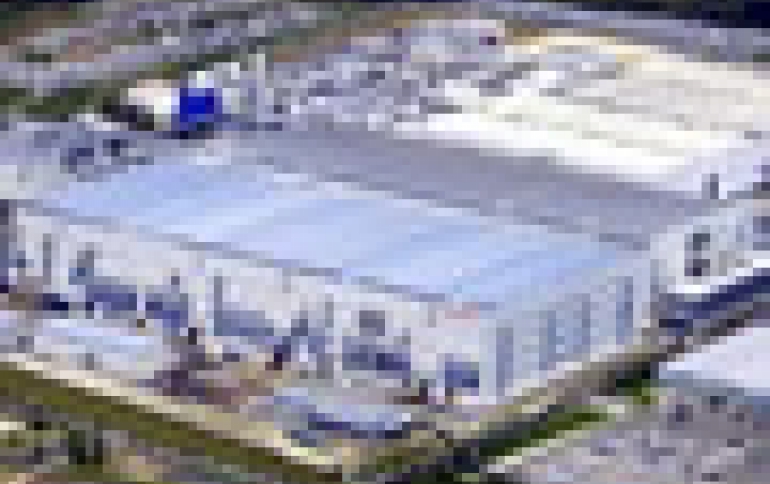
SanDisk and Toshiba to Cut Production of NAND Memory at Facilities in Japan
U.S. flash memory card maker S
The Milpitas, California-based company said in a statement production would be stopped from December 31 to January 12 at its joint venture manufacturing sites in Yokkaichi in Japan. It said when production resumed after the shutdown, it would be at 70 percent of the current flash wafer production of 290,000 300 millimeter-wafers per month.
The Yokkaichi factory is run by SanDisk and Toshiba. It has four fabs. Fab 3 and Fab 4 produce NAND flash memories on 300 millimeter (mm) wafers, Fab 1 and Fab 2 on 200mm wafers. Prior to the January production adjustment, the 300mm wafer lines will suspend operation for 13 days, and the 200mm wafer lines for four days, during the year-end and new-year period, according to Toshiba.
"The duration and extent of this reduction in fab output will depend upon market conditions. These steps will result in higher wafer cost due to underutilization of capacity; however, they are expected to better align SanDisk?s captive output in 2009 with the projected demand in the current global economic slowdown," Sandisk said.
A non-binding memorandum of understanding regarding selling a portion of the capacity from the joint ventures to Toshiba was originally announced on October 20, 2008.
SanDisk also said it was in talks with Toshiba to restructure their manufacturing joint ventures and expects to sign agreements in the first quarter of 2009.
"Recession in the global economy and the slowdown in consumer spending are having a significant impact on demand for semiconductors. This is particularly notable in NAND flash memories, where decreased demand for applications such as memory cards and MP3 players has generated excess supply," Toshiba said in a statement. "Toshiba has fully considered this situation and decided to reduce output at Yokkaichi."
As System LSI and Discrete are also facing weak demand for digital consumer products, Toshiba also said that it had reviewed operating dates for its other semiconductor plants during the year-end and new-year period. The company plans to suspend the operations of its Oita plant (System LSI: SoCs, CMOS image sensors), Kitakyushu plant (System LSI: analog ICs Discrete: opto semiconductors) and Himeji Operations (Discrete: power IC, small signal IC) for a period of 2-3 weeks, starting from the end of December.
The Yokkaichi factory is run by SanDisk and Toshiba. It has four fabs. Fab 3 and Fab 4 produce NAND flash memories on 300 millimeter (mm) wafers, Fab 1 and Fab 2 on 200mm wafers. Prior to the January production adjustment, the 300mm wafer lines will suspend operation for 13 days, and the 200mm wafer lines for four days, during the year-end and new-year period, according to Toshiba.
"The duration and extent of this reduction in fab output will depend upon market conditions. These steps will result in higher wafer cost due to underutilization of capacity; however, they are expected to better align SanDisk?s captive output in 2009 with the projected demand in the current global economic slowdown," Sandisk said.
A non-binding memorandum of understanding regarding selling a portion of the capacity from the joint ventures to Toshiba was originally announced on October 20, 2008.
SanDisk also said it was in talks with Toshiba to restructure their manufacturing joint ventures and expects to sign agreements in the first quarter of 2009.
"Recession in the global economy and the slowdown in consumer spending are having a significant impact on demand for semiconductors. This is particularly notable in NAND flash memories, where decreased demand for applications such as memory cards and MP3 players has generated excess supply," Toshiba said in a statement. "Toshiba has fully considered this situation and decided to reduce output at Yokkaichi."
As System LSI and Discrete are also facing weak demand for digital consumer products, Toshiba also said that it had reviewed operating dates for its other semiconductor plants during the year-end and new-year period. The company plans to suspend the operations of its Oita plant (System LSI: SoCs, CMOS image sensors), Kitakyushu plant (System LSI: analog ICs Discrete: opto semiconductors) and Himeji Operations (Discrete: power IC, small signal IC) for a period of 2-3 weeks, starting from the end of December.





















